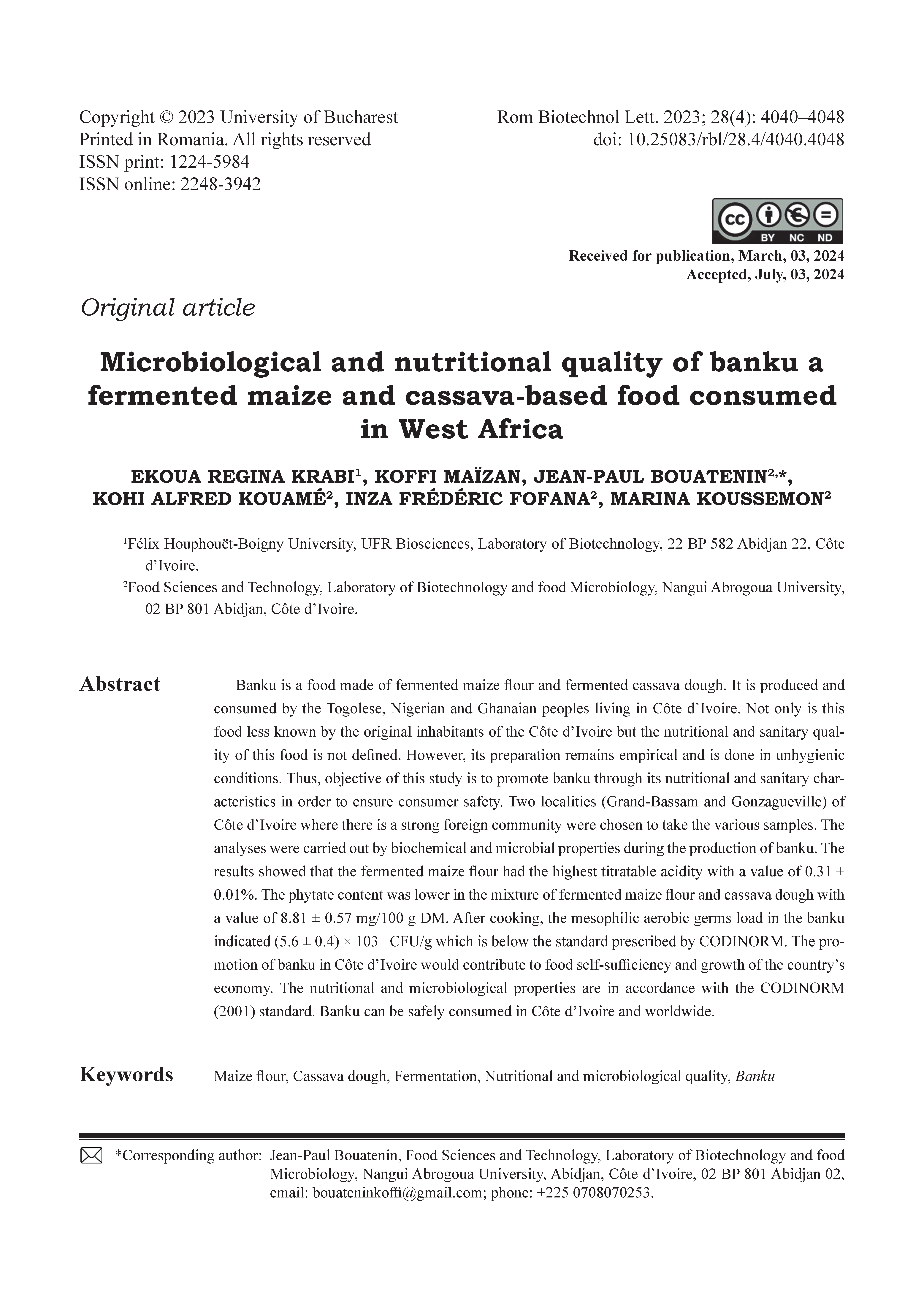Microbiological and nutritional quality of banku a fermented maize and cassava-based food consumed in West Africa
DOI:
https://doi.org/10.25083/rbl/28.4/4040.4048Keywords:
Maize flour, Cassava dough, Fermentation, Nutritional and microbiological quality, BankuAbstract
Banku is a food made of fermented maize flour and fermented cassava dough. It is produced and consumed by the Togolese, Nigerian and Ghanaian peoples living in Côte d’Ivoire. Not only is this food less known by the original inhabitants of the Côte d’Ivoire but the nutritional and sanitary quality of this food is not defined. However, its preparation remains empirical and is done in unhygienic conditions. Thus, objective of this study is to promote banku through its nutritional and sanitary characteristics in order to ensure consumer safety. Two localities (Grand-Bassam and Gonzagueville) of Côte d’Ivoire where there is a strong foreign community were chosen to take the various samples. The analyses were carried out by biochemical and microbial properties during the production of banku. The results showed that the fermented maize flour had the highest titratable acidity with a value of 0.31 ± 0.01%. The phytate content was lower in the mixture of fermented maize flour and cassava dough with a value of 8.81 ± 0.57 mg/100 g DM. After cooking, the mesophilic aerobic germs load in the banku indicated (5.6 ± 0.4) × 103 CFU/g which is below the standard prescribed by CODINORM. The promotion of banku in Côte d’Ivoire would contribute to food self-sufficiency and growth of the country’s economy. The nutritional and microbiological properties are in accordance with the CODINORM (2001) standard. Banku can be safely consumed in Côte d’Ivoire and worldwide.





